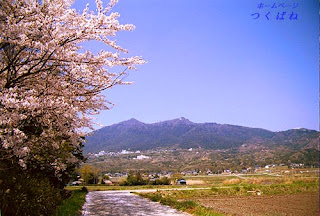Our country gained independence in 1957.
But the road to nation building started way back. Did you know that the Government of the Federation of Malaya established the Malayan Teachers’ Training College at Kirkby, in far-away Lancashire, England in 1951?
The intention was to train talented young Malayans of various racial background to become good educators. In short, they would be the catalyst in the development process of this young nation which shall come into being.
Many stories have been told about the pioneer group of college students. This first group of 148 students were sent to Kirkby in the winter of 1951. They sailed onboard a ship called S.S. Chusan and the journey to London took them 21 days. From London, it was another 4 hour's ride by train to Liverpool. Young and fresh-faced, it must have been a daunting experience for them to have to leave their kampong in sunny Malaya and to have to put up with the cold and windy weather of Lancashire.
But settled in they did. And from the many fond accounts that I've heard of their time in Kirkby, they must have grew on to the love the place. Perhaps partly due to homesickness, I suppose, they even took to calling their new place 'Kampong Kirkby' ! (photos of the campus, below).


During its heyday Kampong Kirkby, I was told, received many distingushed visitors. This includes Y.A.M. Tunku Abdul Rahman when he was negotiating our independence from the British. In fact, it was in Kampong Kirkby that the Tunku, first announced that the British had agreed to Malaya's independence.
Meanwhile, the young Malayans excelled in training. As noted by a lecturer, 'they went about their training with zest and adventurous spirit'. And what's more, they were excellent ambassadors for the nation, too. Yunus Rais, a former trainee himself, commented: “Creme de la Creme, they did their country proud while they were in the UK, and contributed handsomely to educating the young for nation-building on their return".
In all, about 1,500 young Malayans were sent to Kirkby between 1951 to 1962. And this includes my father Ahmad Termizi Mat Nor, shown in photo below (standing, on the right) in front of the college gates.

The ‘Kirkbyites’, as they like to call themselves, returned home well-equipped and up to the challenge. They had distinguished careers, all of them. They taught in schools in many of our towns and villages. And some were even posted in Brunei. They became headmasters, education officers, and university registrars. In recognition of their excellent service and dedication, many have been ‘datukships’ and other awards.
As a testimony to their camaraderie and resourcefulness, many of them still keep in touch through e-mail groups, annual reunions and newsletters.
One fine gentleman by the name of Zainal Abidin Manaf faithfully produces newsletters on a regular basis and e-mails or send them by post to all parts of the world wherever Kirkbyites are to be found. Madam Low Sau San, now residing in Australia, maintains a website
Kirkby Reunion dedicated to the College in Kirkby. Yet another gentleman, Ramli Shaari, has a blog
Memories of MTTC with loads of well-taken, interesting photos of college life.
Sept 15, 2001 marked the 50th anniversary of the foundation of Kirkby. Most of the ‘Kirkbyites’ are now already in their early or mid-seventies. And many have passed on. Even the place they fondly call Kampong Kirkby is now no more, as the College site as has since been redeveloped into a sprawling housing estate.
Therefore, it is quite understandable that many Kirkbyites are anxious to keep the memories and traditions alive long into the future.
It would be great if someone could write a book, or perhaps produce a documentary, on this proud and unique group of Malaysians who, half a century ago, left the shores of Malaya in the line of duty, to serve the nation.
Lest we forget, the Malayan Teachers' Training College, in Kirkby, was a Malayan educational institution. It is, therefore, a part of our history. And that makes Kampong Kirkby a part of our national heritage - even if it is located in wind-swept Lancashire, and that the campus blocks are no more in existence.
 My eldest child Nur Sakinah was drafted in for "national service" for three months beginning January of this year. Yup, I'm referring to the Program Latihan Khidmat Negara (PLKN).
My eldest child Nur Sakinah was drafted in for "national service" for three months beginning January of this year. Yup, I'm referring to the Program Latihan Khidmat Negara (PLKN). 












